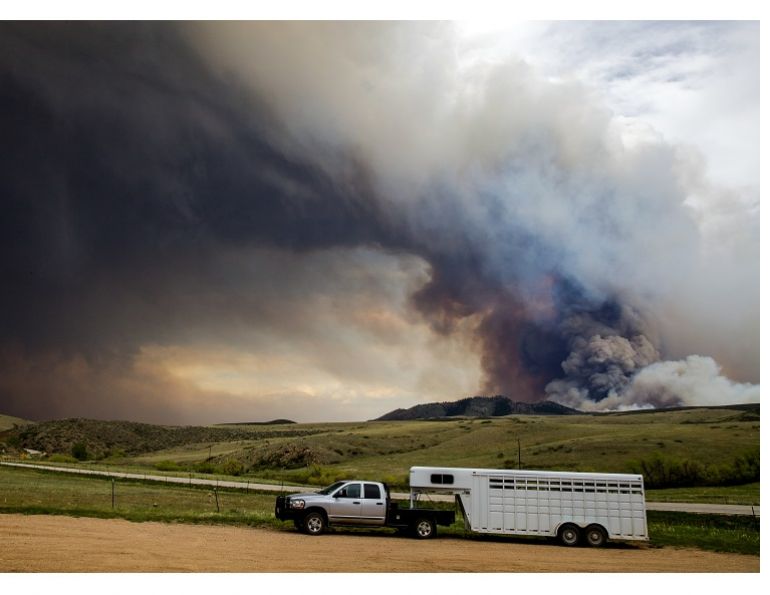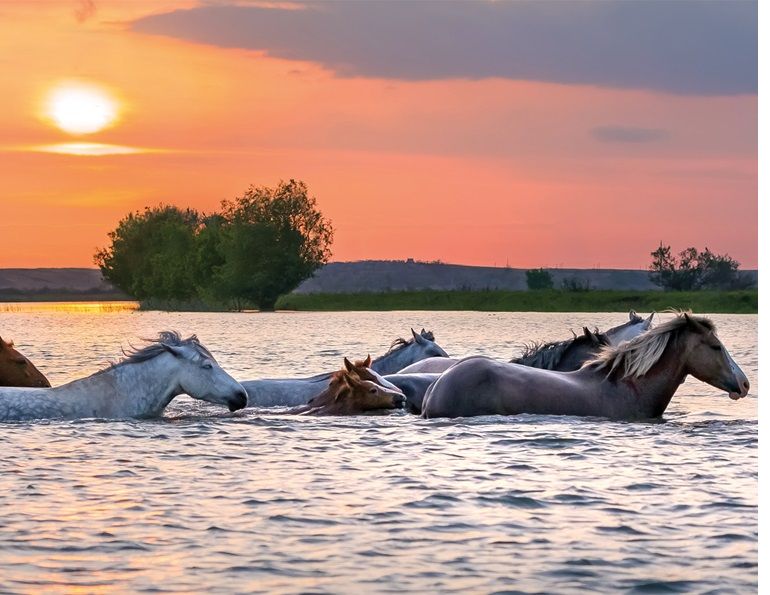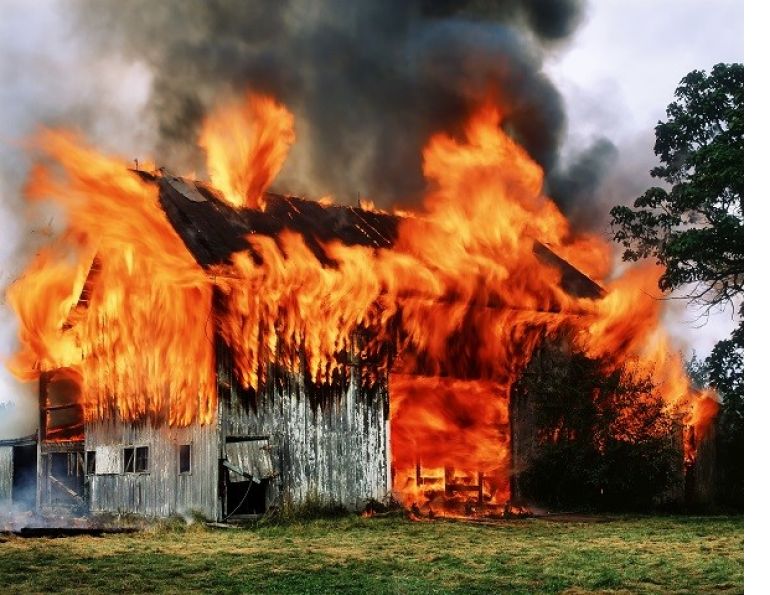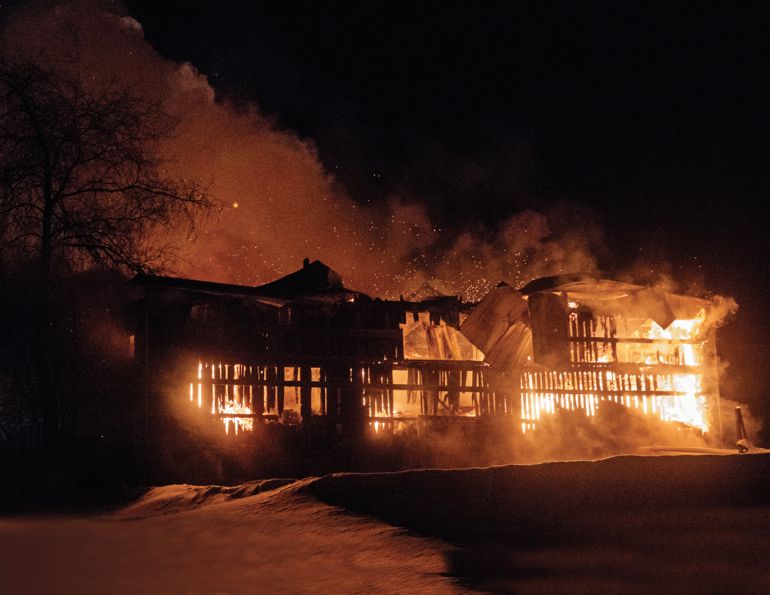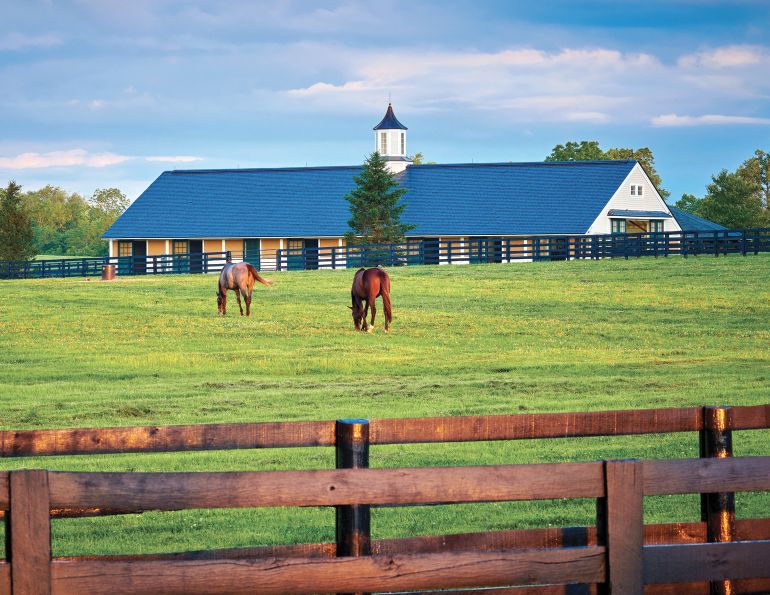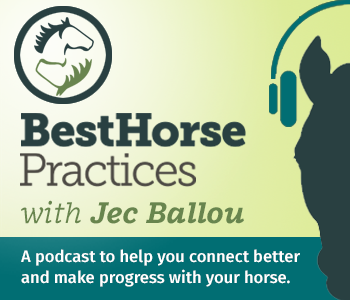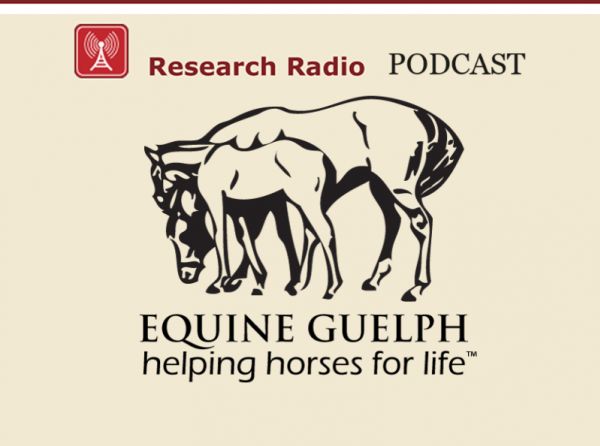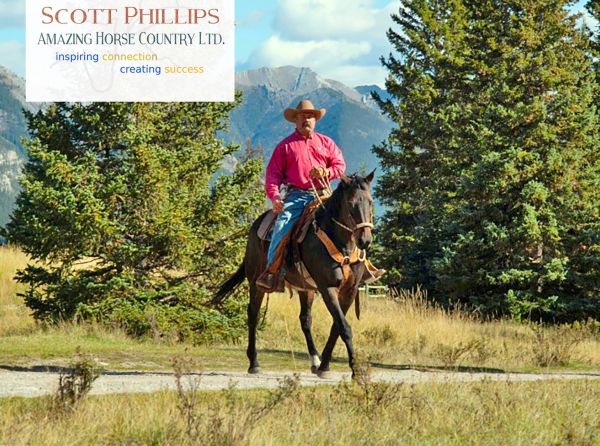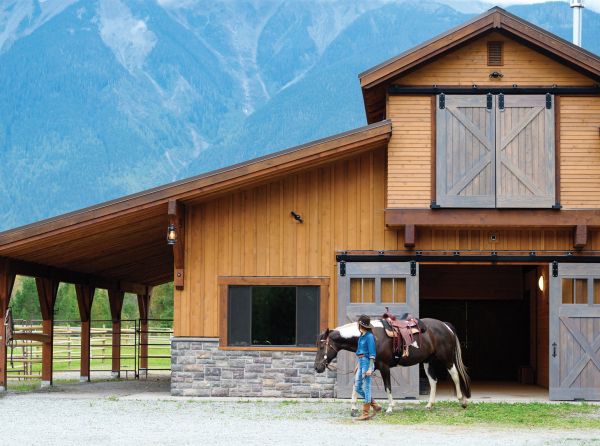By Kathy Smith
Leaves swirl in the slipstream of the SUV as it glides down the shady country lane. Horses in the neighbouring pasture raise their heads to mark the new arrival before returning to peaceful grazing, and the Golden Lab bounds happily across the lawn to greet his family.
According to Statistics Canada, more than 6.3 million Canadians or 19 percent of our population of almost 35 million call rural Canada their home. The qualities of rural life that have traditionally attracted people to the country remain largely the same today. Many folks yearn to leave the city behind, believing that the country provides opportunities for a more natural lifestyle, a slower pace, and a chance to fulfill lifelong dreams such as keeping their horses at home, growing a big garden, and enjoying a healthier way of life.
Related: Family Farms and Ranches

Photo: steverts/iStock
If you long for the countryside and are serious about making the move, there are some unique considerations that go along with this major lifestyle change. A little advance homework can save you big headaches down that country road.
Related: Equine Emergency Preplan Checklist
Are you financially ready?
Buying any home or property is a huge financial commitment, so be realistic about the financial pros and cons. If property values rise you’ll be more financially stable, and you’ll be able to house and care for your horses the way you want without worrying about finding a reputable and affordable boarding facility. But coming up with the down payment as well as regular mortgage payments, along with property maintenance and improvement costs, may tie up your cash flow and cause stress on your finances.
Make a Country Home Purchase Plan
You’ve decided to make the move, and it’s time to start planning. Start by carefully and clearly defining your specific needs. Make a list of the features that are essential to have in your new home and property, a second list of things that are important, and a “wish list” of things you’d like but can live without. This will help you stay on track when tempted by features you don’t really need or can’t afford as you assess each property.

©CanStockPhoto/S Goodwin
Consider every aspect of your proposed new home. Do you want plenty of acres for pasture and growing hay along with space for a riding ring… or would you prefer a smaller acreage featuring a four-stall barn and some turn-out areas, knowing you’ll need to buy and store hay year-round. Consider the corresponding need for fencing, equipment, and maintenance in each situation.
Raw land
When considering a piece of undeveloped land, base your decision for the property on what both you and the land are capable of. Raw land will need a lot of improvements – do you want to clear trees, install services, drill a well, and create a septic field, etc. Or would you prefer to buy a property already set up so you can be settled in before the snow flies? Does the property lend itself to good pasture or hay land, or is it rocky with poor soil, or wet and marshy in places. Does it have a good building site?
Try to view the property at different times of the year to determine if there are season concerns such as flooded areas in the spring. For clues, look at the lay of the land and the creatures that inhabit it in its natural state.
Related: How to Buy a Horse Property
Zoning and land use
Zoning determines how the land can be used, including lot sizes, height of buildings, setback requirements from property lines and roadways, and other conditions, and is intended to minimize incompatible land uses and facilitate orderly development. Your local municipal office can answer your questions about the zoning and land use requirements for the property you are considering.
Ask specific questions about the property and the region: Could the old gravel pit down the road be re-opened someday bringing gravel trucks banging past your house? Could the field across the road be developed into a residential subdivision, destroying your pastoral view? Do any conservation issues prevent you from converting the wet area at the back of the property into a pond? Are there any easements or rights-of-way across the property?
Do not assume you can have animals on the property just because it’s in the country, especially if it’s close to an urban centre. Confirm the types and number of animals allowed. Find out about manure storage requirements, setback distances from wells and property lines, and any other conditions that may affect your intended use and enjoyment of the property.
While you’re at municipal hall, find out what to do with your trash; it’s very unlikely you will have garbage and recycling pick up as you did in town. Can you burn it or is the local landfill site within easy driving distance?
Go local
Use a local real estate agent and a local lawyer, both of whom should be familiar with the historical information of the region. Talk to the neighbours and ask about the realities of living in the area. Walk the property boundaries with another knowledgeable horse person and with someone very familiar with the area, to get a feel for the lay of the land and help you decide if it suits your needs and plans.
Know exactly what you are buying
If there is no existing survey, have the property surveyed to determine its exact dimensions and size, as well as precisely where the property lines are.
Related: Building Your Dream Barn
Water and septic
Without exception, water wells and septic systems should be thoroughly investigated. Have the water well and related equipment checked by a qualified well driller, and have the water tested for quality and quantity. The septic system should be inspected to ensure that it is in good working order. Not only can septic and well systems be expensive to repair, they can cause major headaches if they stop working, especially in the dead of winter.
Winter
Wintertime can be especially challenging. The long driveway that affords so much privacy will need to be ploughed regularly in the wintertime. Can a neighbour be hired for driveway clearing and other major work projects on your property, or will you need your own equipment? You’ll need to drive to work – will the access road be plowed regularly and be safe to drive on, or will you need to buy a truck or SUV to get through snow drifts?

Ask neighbours about the typical frequency and length of power outages, as services in rural areas are often among the last to be restored. Will you need a backup generator? Plan ahead so these eventualities will not become emergency situations.
Be honest with yourself
The dream of owning property is romantic, calling up visions of peaceful days and star-filled nights, with smog and traffic jams left far behind… but the reality can be hard work. Are you prepared to spend your summer weekends fixing fences and painting the barn, or will you be yearning for the golf course? Are you physically able to maintain the property, or can you afford to hire help?
How will your spouse and children be affected by the move – will the kids still be able to enjoy after-school activities, and does your spouse want this lifestyle change as much as you do? Will you miss the convenience of town, and the easy access to cultural activities?
A sometimes unanticipated change that comes with moving to the country is the lack of services and public transportation, which means you’ll be driving just about everywhere. If you have children involved in extra-curricular activities or when you simply need a jug of milk, you’ll likely be driving. You may find it necessary to purchase another vehicle. If you want the peaceful lifestyle but with modern amenities, consider an acreage subdivision close to town, where you may find the best of both worlds.
After considering all the aspects of your proposed move, you believe it’s the right decision for you and your family. It’s time to put your country home purchase plan into action, and to start looking forward to driving down that country lane toward the soft nickers of your horses as they welcome you home.
Related: 10 Tips To Help You Build A Better Barn Businesss
Related: Building Your Dream Horse Barn
Main article photo: Shutterstock/PeopleImages-Yuri A









